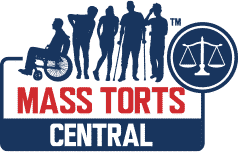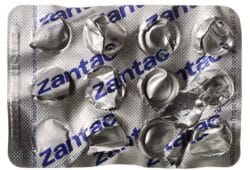Zantac Lawsuit – Settlements & Recalls – Cancer Injuries

Researchers have linked Zantac to several types of cancers. Thousands of people have filed Zantac lawsuits after regularly using the drug and subsequently developing cancer. These multi-district litigations and class action lawsuits are ongoing, and more are joining the fight for compensation.
Pharmaceutical products have made a vastly positive impact on the quality of life and life expectancy of humans. Drug research and manufacturing have saved countless lives with innovative medicines. However, while most of these drugs are safe when taken properly, some can be harmful, or even downright dangerous.
When drug manufacturers cut corners or don’t warn the public of their medication’s potential hazards, causing consumers to develop serious illnesses, those manufacturers must be held accountable. If you or a loved one have been diagnosed with cancer or another disease after regular use of Zantac, you may be eligible for compensation.
What is Zantac?
Zantac belongs to a group of drugs called histamine-2 blockers. It reduces the amount of acid the stomach produces. People use this drug to treat a variety of acid-related conditions, including:
- Ulcers of the stomach and intestines: Open sores that develop on the inside lining of the stomach or intestines. The most common symptom of ulcers is stomach pain. Other symptoms could include feeling full or bloated, heartburn, or intolerance to fatty foods.
- Heartburn: A burning pain in the chest. This pain usually worsens after eating or when sitting or lying down for a long time. Heartburn occurs when stomach acid backs up into the esophagus.
- Gastroesophageal reflux disease (GERD): This occurs when stomach acid repeatedly flows back into the esophagus. It can irritate the lining of the esophagus. Symptoms can include a burning sensation in the chest, trouble swallowing, or a sensation of having a lump in your throat.
Many of these conditions are common among Americans, but medications like Zantac alleviate the associated symptoms and are widely used.
However, studies have shown that Zantac, and other drugs like it, contain the carcinogen N-Nitrosodimethylamine (NDMA), which is classified as a B2 carcinogen. This means it is likely a human carcinogen that can cause various types of cancer. The U.S. Food and Drug Administration (FDA) requested that Zantac made with ranitidine be pulled from all store shelves.
Update on the Zantac Lawsuits against Drug Manufacturers
Zantac lawsuits are now approaching the trial stage. Judges in California and Florida have scheduled the first bellwether trials (test trials that consist of a small group of lawsuits). The point of these trials is to set a precedent for how future similar lawsuits will go.
The multidistrict litigation (MDL) in Florida will begin in July of 2023. Currently, the Florida MDL has over 2,000 plaintiffs. The courts form MDLs when multiple plaintiffs sue the same defendants for similar reasons. Combining the pre-trial hearings together can help to save court resources and time.
Currently, the manufacturers of Zantac have only settled one lawsuit. A man in Illinois received over $500,000 through a settlement after proving regular Zantac use and developing cancer. No lawsuits have yet been settled with any of the MDLs or class action lawsuits.
Zantac Injuries & Side Effects
When Zantac was still on the market, it had many associated side effects, including:
- Stomach pain, which often leads to people losing their appetite
- Jaundice, which causes dark yellow urine and yellowing of the skin and eyes
- Cold symptoms, such as a fever, chills, cough, or shortness of breath
- Easy bruising or bleeding
- Problems or changes in users’ skin and hair.
- Stomach issues such as constipation, diarrhea, nausea, or vomiting
In addition to these side effects, studies have shown that regular use of Zantac also causes severe injuries and illnesses, and has been linked to certain types of cancer, including:
- Stomach cancer: This type of cancer can originate in any part of the stomach. If not found early, stomach cancer is fatal.
- Bladder cancer: The most common type of cancer associated with Zantac use. If caught early, bladder cancer can be treated. Frequent checkups are recommended to keep an eye out for relapse.
- Kidney cancer: When kidney cancer remains localized to the kidney, survival rates are high. Kidney cancer usually gets caught in its early stages while it is still only in the kidneys and hasn’t spread throughout the rest of the body.
- Liver cancer: Cancer in the liver typically originates elsewhere and spreads to the liver. Many people don’t have signs or symptoms in the early stages of liver cancer. Once cancer has progressed, people with liver cancer could experience loss of appetite, upper abdominal pain, nausea, vomiting, and jaundice.
- Breast cancer: The second most common cancer for women in the United States. Symptoms can include a lump or thickening in the breast that feels different from the surrounding tissue, or changes in the shape or appearance of the breast. Breast cancer is more treatable if it is caught in its early stages.
- Prostate cancer: Prostate cancer is one of the most common types of cancer in men. These cancers usually grow slowly and stay confined in the prostate gland. In many cases, prostate cancer requires little to no treatment. If caught early, treatments for prostate cancer are often successful.
On top of the many types of cancer Zantac is linked to, it can cause a slew of other health problems, including heart attacks, intestinal bleeding, kidney failure, liver damage, and thyroid problems.
What Do We Know About NDMA?
N-nitrosodimethylamine, also known as NDMA, is a probable human carcinogen. Normally, NDMA breaks down when sunlight or heat hits it. In Zantac, if someone stores the medication at temperatures that are too high, the NDMA concentration could increase.
For most people, ingesting a small amount of NDMA won’t cause a lot of harm. The liver can break small amounts down, and it can leave the body through urine or air. However, higher exposure to NDMA over a longer time can increase someone’s cancer risk. Zantac with ranitidine is a medication contaminated with NDMA.
Researchers have linked several types of cancers to NDMA exposure, including bladder cancer, breast cancer, prostate cancer, stomach cancer, and others.
Zantac Recall Update
When the FDA determined Zantac had higher than acceptable levels of NDMA, they recommended it be pulled from the shelves. Most retailers stopped selling Zantac with ranitidine, making it as good as recalled. Therefore, it is difficult to find this product on the market at this time.
Zantac Replacement – What are the FDA-Recommended Zantac Alternatives?
Many people who used Zantac regularly will need a new drug to alleviate their symptoms. The FDA has other products they recommend using in place of Zantac. On top of these drug recommendations, they also recommend lifestyle changes to try to manage heartburn and other acid-related symptoms.
Zantac alternatives recommended by the FDA include:
- Nexium (esomeprazole)
- Pepcid (famotidine)
- Prevacid (lansoprazole)
- Prilosec (omeprazole)
- Tagamet (cimetidine)
If you are considering using one of these alternatives, it can be helpful to speak with your medical care provider to ensure the new medication is right for you.
What Compensation is Recoverable in Zantac Lawsuits?
If you believe you’ve experienced illness or injury due to regular Zantac use, you can file a lawsuit against the manufacturers of Zantac. Through the lawsuit, you can pursue compensation for your damages (the amount of money the courts could require someone to pay someone else for causing their injuries and losses).
The amount of compensation you could recover depends on the severity of your injuries and how they’ve impacted your life. Those who have developed cancer (or other diseases) because of Zantac use could recover the following damages:
- Medical bills: Any costs you have paid towards medical bills could be compensated through the Zantac lawsuit. You can seek compensation for your past and future medical bills, including the costs of cancer treatments, medications, hospitalizations, outpatient hospital visits, ambulance rides, emergency room care, and diagnostic testing.
- Emotional suffering: The health conditions you sustain because of Zantac use could upend your emotional well-being. Enduring cancer diagnosis and treatment can negatively impact someone’s emotional peace for years. If your injuries have caused a chronic emotional condition, you could recover compensation.
- Physical pain and suffering: The side effects associated with cancer treatments can cause someone to endure intense physical pain. You could recover compensation because of the pain you had to suffer through because of cancer you developed.
- Lost income: You could lose your job for a variety of reasons after getting diagnosed with cancer. Some of the reasons include no longer being able to perform routine job duties or being hospitalized for a long period of time. You could recover compensation if you lost your job or had to miss work because of your illness.
If someone dies from their Zantac-associated illness, their surviving family members could recover compensation on their behalf. Typically, damages could include final medical care, funeral or celebration of life costs, burial or cremation costs, and loss of consortium, companionship, or emotional support. An attorney can help surviving family members know whether they have grounds to pursue compensation for their deceased loved one’s behalf.
A product liability attorney can help you determine the estimated settlement value you could recover through a Zantac lawsuit by reviewing all of your unique damages and losses.
FDA Studies and Recalls Regarding Zantac
FDA testing and evaluation confirm that NDMA levels increase in ranitidine (a key ingredient in Zantac) even when stored in normal conditions. When ranitidine is exposed to higher temperatures (during distribution or consumer handling), the NDMA levels can increase even further.
Testing by third-party labs indicated that Zantac products with ranitidine could have an increase in NDMA when it is stored for a long period of time. The longer it is stored, the higher amounts of NDMA the product could contain.
Because of this, there is no way for any consumer to know exactly how much NDMA is in the Zantac they take. They don’t know if their specific product had exposure to hot temperatures or if the levels of NDMA have increased over time. Without knowing, consumers could continuously ingest more than the acceptable daily intake limit of NDMA.
How Liability Law Applies to the Zantac Cases
Product liability law provides the victims of dangerous products with legal recourse after sustaining injuries or developing illnesses. If a product has a defect or poses a danger, that means it does not meet the consumer’s expectations. Product liability claims typically fall under three categories:
- Design defect
- Manufacturing defect
- Insufficient labeling
Recent studies indicate that Zantac made with ranitidine can potentially cause human cancer. This means there is likely a design defect. The FDA requires drug manufacturers to test their products rigorously before selling them to consumers. If the makers of Zantac did not, the victims could also sue for negligence.
Some believe that the manufacturers of Zantac have known their ranitidine products have higher than acceptable levels of carcinogens and yet, did not warn consumers. Zantac manufacturers could have acted negligently by not warning their millions of consumers that their product could potentially cause cancer.
Contact a Mass Torts Attorney Today
A cancer diagnosis can change someone’s life forever. Cancer patients may have to endure painful treatments for years just to stay alive. If Zantac use caused your cancer, the manufacturer should be held accountable.
To get started, contact an attorney for a free, no-obligation consultation. An attorney from our network can review your case at no cost, explain your legal rights, answer any questions you have about the Zantac lawsuit, and help determine your next steps. Let the mass torts lawyers in our network fight for your compensation while you rest and recover.


